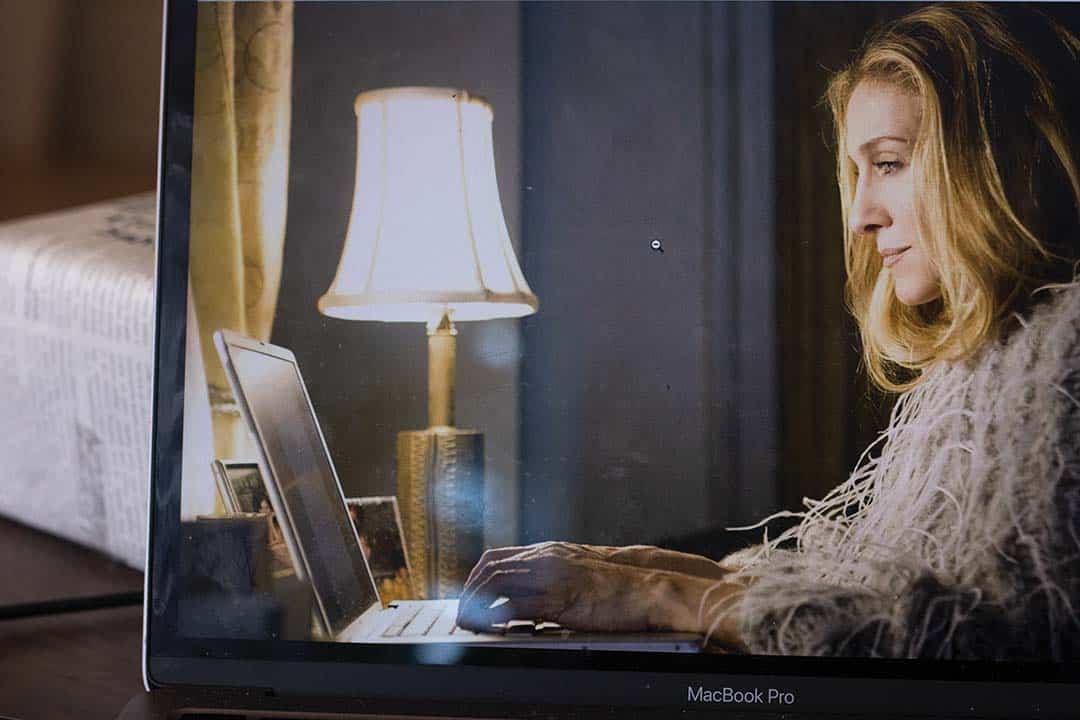Carrie Bradshaw –– the eternally influential main character of the iconic HBO series Sex and the City (SATC) –– is a sex columnist. SATC revolves around Bradshaw narrating the sex and relationship dilemmas that she pens into her weekly column. Bradshaw, alongside her circle of three friends, pushes viewers out of their comfort zones with women’s sex talk. The liberated sex talk frequently found in SATC is one of the reasons why the show is a trailblazer, even two decades after it first aired. The show set a precedent that transformed the way sex is depicted in the media.
It is for this reason that I was stunned when even in a show that is based entirely on liberated sex talks, discussions on sex are sometimes still met with cues to read the room. Watching this, I couldn’t help but realize that, even two decades after SATC, public talk about sex is still perceived as more vulgar than it is empowering. Although SATC pushed the limits on how we talk about sex, it seems, however, that it was still not enough to destigmatize sex talk. Public discourse over sex must continue to be encouraged because open discussions allow for a broadened worldview and an understanding of the common but unspoken struggles of sex.
Twenty-first century and its pseudosex liberation
It’s hard to even imagine that there was ever a time when the infamous line uttered by Rhett Butler in Gone With the Wind –– “Frankly, my dear, I don’t give a damn” –– was on the verge of being censored in 1939 because of how offensive the word “damn” was. Luckily, the times are changing, and there have been drastic shifts in recent years in how we talk about explicit content. In the twenty-first century, it only takes watching one PG-13 movie to realize that we’re now living in a new age with less censorship of explicit content. Overall, discussions on sex and sexuality are now less censored in the media, news outlets, and our daily lives.
In particular, specific discussions over sex and sexuality have been less scrutinized and more encouraged. This is demonstrated in the increase in the number of shows like Sex Education, Euphoria, and Never Have I Ever that all commonly embody narratives that normalize sex while portraying various types of sexualities and relationships.
One pivotal transformative moment in the way sex is depicted in media, which I’m sure everyone is familiar with, was the release of Fifty Shades of Grey. The entire trilogy, which amassed over one billion internationally at the box office, pushed the boundaries of the way sex is conventionally portrayed in film. As a result of Christian Grey’s whips and handcuffs, niche and unconventional sexual preferences paddled up to the surface of discussion. A young, innocent university student becoming immersed in a young billionaire’s BDSM lifestyle was a cultural reset in how we talk about sex.
As much as the general public likes to indulge in sexual liberation in the media, standards shift when matters get personal. Although the Fifty Shades series was a cultural reset, I still remember the release of the movies being met with hushed whispers about the sexually explicit content. Even the very people who bought tickets to watch Fifty Shades of Grey set a record high for the online purchase of movie tickets from Fandango, one of the top movie ticket booking systems, with 29 per cent of their site’s domestic tickets being sold to view the whipping-infused movie. It is comical to think that so many people preferred purchasing an “intro to BDSM” ticket in the comfort of their homes rather than facing the scrutiny of the box office cashiers.
While we may chuckle at this, we also need to ask ourselves how liberated we actually are when it comes to openly talking about sex. The reality is that we cannot destigmatize discussions around sex when we continue to create grey areas on permissible topics of sex discourse.
Where does all the lonely sex talk go?
In recent years, conversations on sex — in person and on the screens — have become safe havens for concerns and questions about sex. This is a step forward in destigmatizing the way we talk about sex.
Nevertheless, I’m still hesitant to declare that conversations surrounding sex are fully destigmatized in society. As common as it is to pass by a group of girls in a U of T college dining hall discussing their sex life, there are times when they also would shush whoever is speaking about the matter.
The hush-hush attitude toward sex talk implies there is a time, place, and occasion for discourse on sex. This internalized stigma over sex talk is rooted in generations of conflating discussions about sex with an unsophisticated part of culture. We will never fully be free in how we talk about sex until we address our internalized stigma around so-called crass talk. And just like that, we are not as liberated as we thought.
Eleanor Park is a second-year student at Trinity College studying English and religion. She is an associate comment editor at The Varsity.


